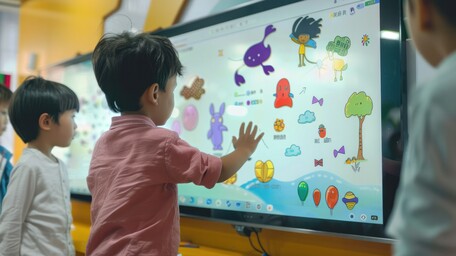E-learning through Adaptive Gamification: Effects on Students' Course Engagement, Self-efficacy and Learning Performance
- Project Scheme:
- General Research Fund
- Project Year:
- 2024/25
- Project Leader:
- Dr Bai, Shurui Tiffany
- (Department of Mathematics and Information Technology)

This project will advance our understanding of an individual student’s temporal changes in motivation, contribute new pedagogical suggestions to designing AG in e-learning environments.
Gamification uses game elements (e.g., points) to enhance people’s motivation in non-game contexts (e.g., mile points in airlines). In education, the widely used one-size-fits-all gamification (OG) approach applies the same game elements to all students and has shown inconsistent results in increasing student motivation compared to non-gamified conditions. Many researchers have suggested the reason for its inability to accommodate students’ different motivations. To overcome this limitation, the emergence of adaptive gamification (AG) presents a promising alternative. AG tailors game elements to match a user’s motivation in gamified systems. Despite its promise, previous AG research has two significant limitations. First, its current implementations are “static” adaption, i.e., merely adapting game elements based on a student’s initial reported motivation. However, recent evidence suggests that a student’s motivation changes over time. Second, as an emerging research trend, AG research lacks evidence of its impacts on many motivation-related educational outcomes, such as course engagement, self-efficacy (belief in one’s ability to accomplish a task), and learning performance. Understanding the impacts of AG is necessary for improving these outcomes. This project aims to address these two limitations in two phases. In Phase I, we introduce a 3-stage dynamic gamification adaption (DGA) implementation to adapt game elements to a student’s temporal changes in motivation. Stage 1 reports the student’s dominant gamification user type (a representation of motivation). Stage 2 tailors a game element based on the dominant gamification user type. Stage 3 retailors or retains the game element based on a student-learning management system (LMS) engagement index. A DAG plugin in Moodle (a widely used LMS) will be developed to automate the 3 stages. We will conduct an experiment to test and refine the DGA implementation. In Phase II, we will conduct a randomized controlled experiment to compare the impacts of AG (using the refined DGA implementation) with OG on course engagement, self-efficacy, and learning performance. AG group participants will receive several rounds of game elements recommended by the DGA Moodle plugin. In contrast, OG group participants will receive a uniform game element (e.g., points) in Moodle. This project will advance our understanding of an individual student’s temporal changes in motivation, contribute new pedagogical suggestions to designing AG in e-learning environments, and produce a DGA Moodle plugin for a wide impact across multiple disciplines and regions.








